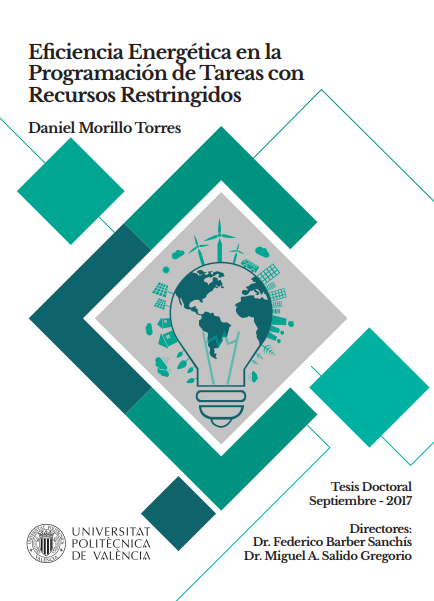Eficiencia energética en la programación de tareas con recursos restringidos
Licencia: Creative Commons (by-nc-nd)
Autor(es): Morillo, Daniel
In the field of operations research, the set of scheduling problems of activities is considered as one of the most relevant ones due to its great applicability and complexity. Within the broad variety of problems in this set, it is remarkable the Resource-Constrained Project Scheduling Problem (RCPSP), since it is regarded as the most important-base problem in this area and it has been the object of study in countless research projects. Basically, this problem consists of a project split into sets of activities that are related to each other by means of precedence-constraints, and require an amount of each limited resource, to be performed. The objective, then, is to allocate in the most efficient way those resources to the activities in order to optimize a scoring function such as the makespan. Similar in importance is the multimodal-version of the RCPSP, called MRCPSP, in which for each activity there exists multiple execution modes that involve a different combination of limited resources, giving rise to a different execution time. In the literature, it has been addressed widely these two problems with both exact methods and approximation methods, being these latter the most successful. These research works have focused mainly on obtaining economic advantages such as costs and project time minimization. However, with the accelerating globalization and the fast countries' growing economies, the race for power resources have increased sharply. In fact, the importance of taking into account the energy consumption on modeling has become so important that it is now considered as important as other performance measures such as productivity and costs.
[Valencia: 2017]
Compartir:
Una vez que el usuario haya visto al menos un documento, este fragmento será visible.


